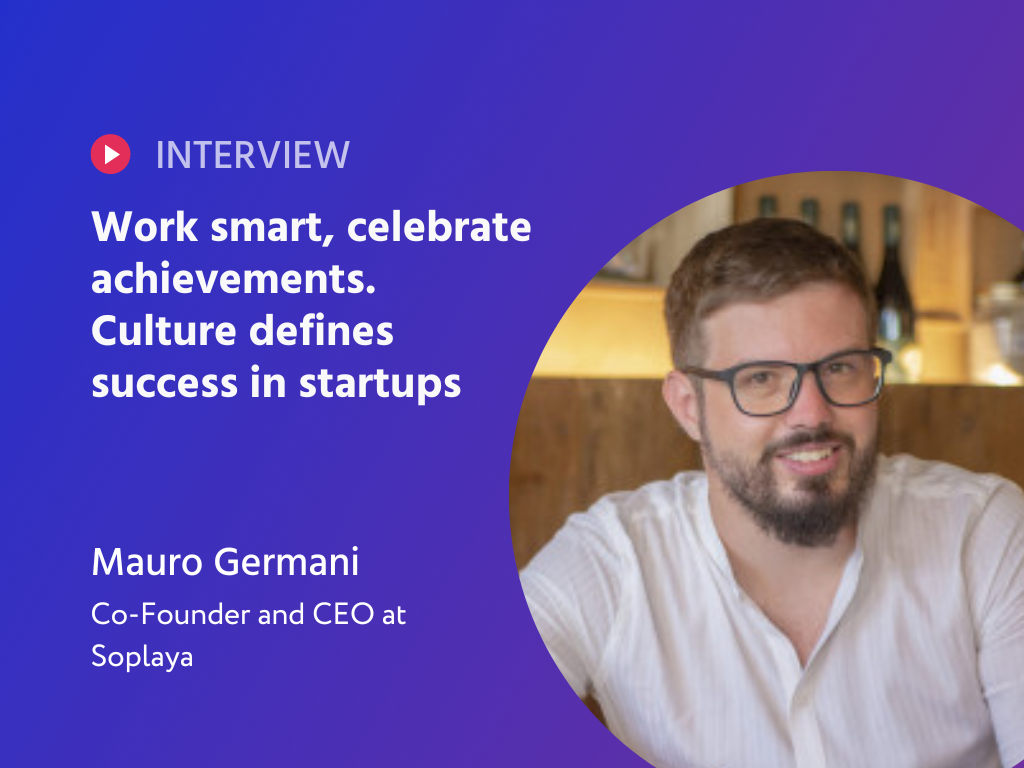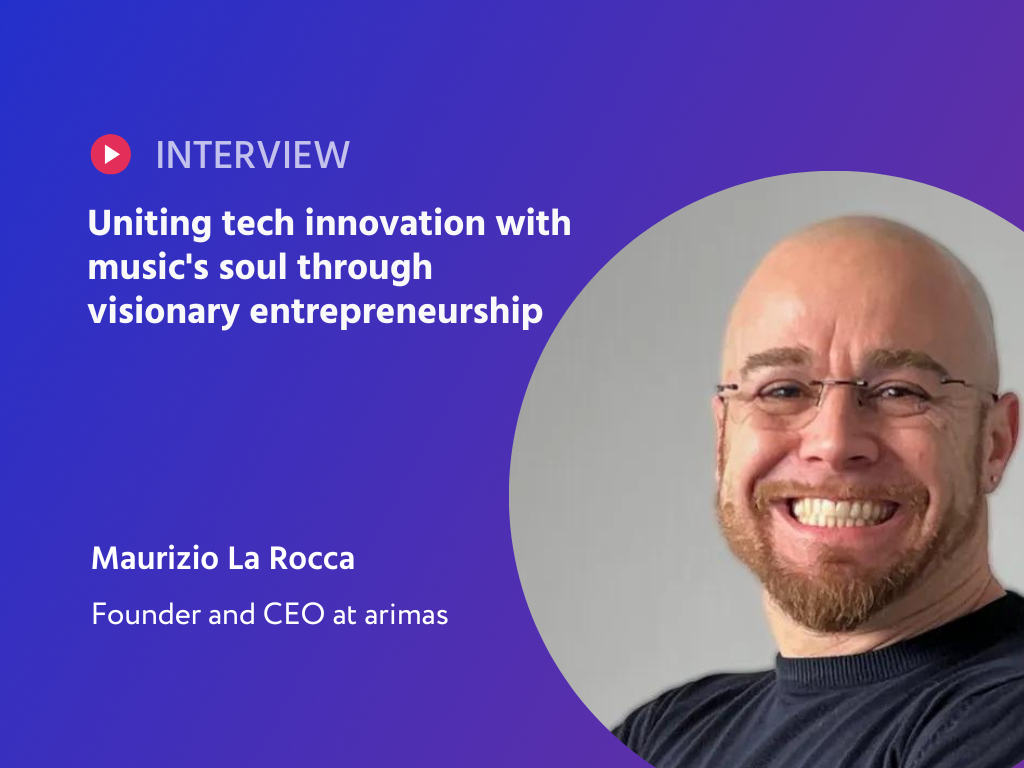In this edition of Bright Founders Talk by Temy, we had the pleasure of speaking with Jay Shah, Co-Founder and CTO of Kiroku. With a background in natural language processing and advanced computer science from Cambridge, Jay brings a deep technical perspective to healthcare innovation.
Kiroku is a software company transforming how dentists and doctors manage their documentation, aiming to automate time-consuming record-keeping processes. During our conversation, Jay shared his journey from a passion for building things in high school to co-founding a startup born out of Entrepreneur First’s founder program. He spoke about the serendipitous partnership with co-founder Hannah and how her real-world experience as a dentist shaped Kiroku’s mission.
Jay’s story underscores the power of timing, risk-taking, and learning by doing. We explored the intersection of AI, healthcare, and entrepreneurship—and how a simple idea evolved into a tool that meaningfully impacts clinicians’ daily lives. Read on to learn how Kiroku was built, what challenges they’ve overcome, and Jay’s insights for aspiring founders.
From Algorithms to Appointments: How Jay Shah’s Tech Journey Landed in a Dentist’s Chair
Jay Shah didn’t set out to transform the world of dental documentation. He was just a kid who loved math, physics, and building stuff. The spark really lit up when he heard that you could build a million-pound company from your bedroom—now that sounded like a challenge worth chasing. That led him through a Computer Science degree at UCL, a master's in Natural Language Processing at Cambridge, and eventually, to a career crossroad. Should he dive into academia? Join a bank like his peers? Or take a leap into the unknown? Spoiler alert: he leapt. Jay joined Entrepreneur First, a program for future founders, expecting to build something cool—he just didn’t expect it would involve dental charts.
The idea for Kiroku wasn’t born in a boardroom—it started in a fast-paced founder incubator with a bit of “startup speed-dating.” That’s where Jay met his co-founder Hannah, a dentist frustrated by the endless hours of note-taking after patient visits. Her insight hit a nerve (pun intended): “eight hours with patients, two hours of admin.” Jay saw the opportunity instantly. It wasn’t glamorous, but it was real—and ripe for automation. “It was repetitive, it was painful, and it was just waiting for someone to fix it,” he recalls. Together, they tested the idea for a week. It clicked. A dentist and a data guy walked into a room… and walked out with a mission.
Of course, good timing and smart ideas only get you so far—networks matter too. Jay credits his journey to a mix of curiosity, luck, and the people he met along the way. Cambridge provided the launchpad (one of his professors became their first investor), and Entrepreneur First gave him a front-row seat to some of the brightest minds in tech and science. But it wasn’t all smooth sailing. “I thought I was the hotshot from Cambridge... until I walked into a room full of people from NASA and DeepMind,” Jay laughs. That dose of humility didn’t slow him down—instead, it pushed him to stretch further, build faster, and talk to anyone who would listen. Because that’s how startups are born: not from a perfect plan, but from real problems, bold moves, and a little bit of grit.
I thought I was the hotshot from Cambridge… until I walked into a room full of people from NASA and DeepMind
How a Buggy AI and a Bold Bet Turned Dentists into Believers
You’d think the hardest part of launching an AI-driven startup would be, well… the AI. But for Jay Shah, that wasn’t the case. “I could stay up for seven days straight and build something,” he says. The real challenge? Convincing people to try it. Imagine asking dentists—busy professionals who rely on accurate documentation to protect patients and themselves—to trust a couple of fresh grads in their twenties with a buggy new platform. Not exactly a slam dunk. Gaining trust took time, persistence, and a co-founder with a knack for persuasion. While Jay built the tech, his partner Hannah hit the phones, made connections, and convinced early adopters to give their scrappy system a shot.
I could stay up for seven days straight and build something
Even once Kiroku started gaining traction, another hurdle loomed: making AI helpful without making clinicians paranoid. In medicine, speed is good—but accuracy is sacred. Jay knew that AI could help doctors save time, but only if they felt in control. “The clinician has to have the final say,” he explains. So they designed the system with that in mind, focusing on making reviews and edits effortless. Notes generated by AI could be skimmed and approved in under 10 seconds. If changes were needed, the UI made them dead simple. That trust-through-design approach became a cornerstone of Kiroku’s growth.
Of course, no startup story is complete without a plot twist. For Kiroku, it came in the form of a global pandemic. Just three months after launch, COVID-19 hit—and dentistry, like much of the world, ground to a halt. But instead of stalling, Jay and his team saw a strange kind of opportunity. They made Kiroku completely free during lockdown, offering dentists something useful while their chairs sat empty. Many took that downtime to explore new tools, and word spread quickly. “Within three months, we 5x’d our growth,” Jay says. That wave of organic adoption—fueled by Zoom calls, onboarding marathons, and good old word-of-mouth—laid the foundation for everything that followed.
From Lockdown Luck to Lightning-Speed Features: How Kiroku Keeps Winning with Simplicity & Speed
Sometimes the smartest business moves don’t come from complex strategies—they come from gut instinct and a little bit of common sense. When COVID hit just after Kiroku’s launch, Jay and his team made the call to make the platform free for everyone. It wasn’t some grand marketing plan—it just felt wrong to charge dentists who suddenly couldn’t work. “We literally just launched… everyone’s gonna cancel and leave us,” Jay recalls. That one decision, born out of empathy and timing, ended up sparking explosive growth. Dentists, stuck at home, had time to explore new tools. Word spread fast, and Kiroku's user base multiplied almost overnight.
But growing fast means staying nimble—and Jay knew that in a traditionally tech-resistant field like dentistry, simplicity was key. Kiroku’s setup had to be frictionless. So, they made it self-service: 98% of users can get up and running in five minutes. Surprisingly, that became a challenge too. “People expected us to come into their practice, do a demo, sell them a yearly license—it was too easy,” Jay laughs. Breaking the mold of clunky software and multi-year contracts, they flipped the sales model. Instead of going through practice managers, they targeted clinicians directly. If you want to save time? Buy it yourself. No middlemen, no red tape—just results.
People expected us to come into their practice, do a demo, sell them a yearly license—it was too easy
And now, thanks to AI, everything's moving even faster. What once took months to build now takes days—or less. “A feature that used to take three months… we can now test and ship it in five days,” Jay says. With AI-powered design tools and code generation, the team can prototype, test, and release at lightning speed. That means more experiments, quicker feedback loops, and more chances to hit on what users actually want. Even customer support has leveled up—60% of user queries are now handled instantly by their smart chatbot. Looking ahead, Jay sees a future where the barriers to product building vanish entirely. If you’ve got an idea, you won’t need a team of engineers—just a laptop, a few tools, and a weekend.
Chatbots, Crystal Balls & Startup Truths: Jay Shah on AI, Trust, and Building with Grit
When it comes to customer support, most founders would rather keep the bot behind the curtain. But not Jay Shah. His take? “I used to want customers to think they were talking to a human—but now, I’m not so sure.” As trust in AI tools like ChatGPT grows, the line between human and machine is getting blurry, and customers seem to care less about who they’re talking to, as long as they get what they need. The big win is efficiency. Jay’s noticed that people skip the pleasantries with chatbots—they’re faster, more direct, and sometimes even easier to deal with than humans. Still, he admits, when emotions run high, nothing beats a real person with a calm tone and a willingness to listen.
Zooming out to the big picture, Jay is firmly in the “AI optimist” camp—but with a healthy dose of realism. Yes, there’s potential for harm decades down the line, but in the short term? “The gains from AI are going to be outstanding.” He’s not talking sci-fi fantasies either. Jay sees a future where education becomes borderless, startup costs shrink, and anyone with an idea can test it overnight—no team, no funding, just tools and drive. He’s already living it. At Kiroku, features that once took months now roll out in days thanks to AI-accelerated development. For him, the revolution has already begun—it’s just that most people haven’t realized it yet.
The gains from AI are going to be outstanding
As our chat winds down, Jay drops two golden nuggets for aspiring founders: start before you’re ready, and enjoy the ride. You don’t need the perfect co-founder or a polished business plan—just enough momentum to test whether your idea actually solves a real problem. “Get traction early. Break it down. Keep it simple,” he advises. And don’t forget to have fun. The startup journey isn’t all rocket ships and headline wins—it’s messy, unpredictable, and occasionally brutal. But for those who stick with it, it’s also one of the most rewarding adventures out there. Oh, and if you’re a dentist drowning in documentation? Jay’s got something that might just save you two hours a day—and cost you less than a coffee.




